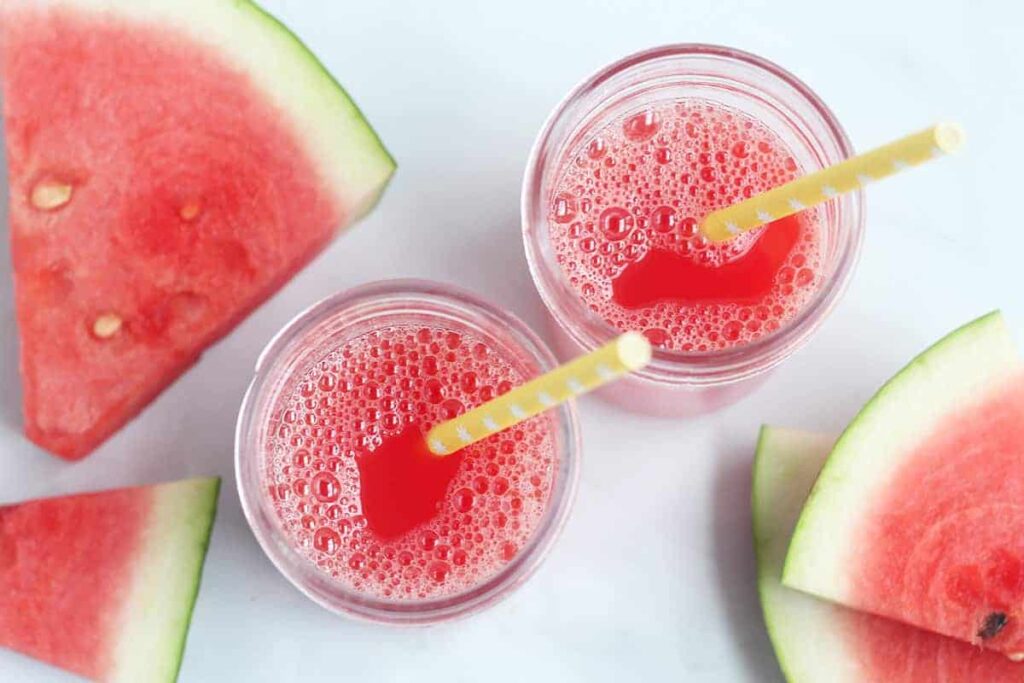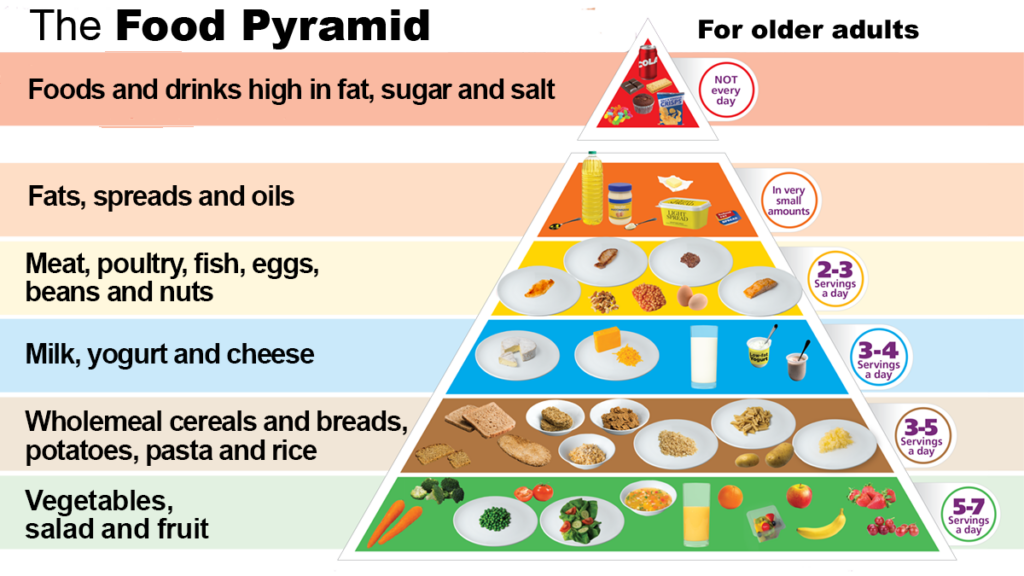As we age, our nutritional needs change. After the age of 65, maintaining a healthy diet becomes crucial to support overall health, prevent chronic conditions, and enhance the quality of life. The body’s ability to absorb nutrients can decline, metabolism slows, and lifestyle changes may influence eating habits. Understanding these shifts can help ensure that seniors are getting the right nutrients to stay healthy, active, and energized.
In this article, we’ll cover essential nutrients and dietary tips for older adults to help meet their evolving nutritional needs.

Key Nutrients for Seniors Over 65
- Protein
As we age, we naturally lose muscle mass, which can lead to weakness, falls, and reduced mobility. Protein is essential for maintaining muscle strength and tissue repair. Older adults should aim for higher protein intake from sources like lean meats, fish, eggs, dairy, and plant-based proteins such as beans and lentils.Recommended Intake: About 1.0 to 1.2 grams of protein per kilogram of body weight daily for seniors, according to research by the National Institutes of Health . - Calcium and Vitamin D
Bone density decreases with age, making older adults more susceptible to fractures and osteoporosis. Calcium is critical for bone health, while Vitamin D helps the body absorb calcium. Many seniors don’t get enough Vitamin D, especially if they spend limited time outdoors.Sources of Calcium: Dairy products like milk, yogurt, and cheese; leafy greens; fortified plant-based milks.
Sources of Vitamin D: Sunlight, fortified foods (such as milk and cereal), and fatty fish like salmon.Recommended Intake: Older adults should get 1,200 mg of calcium and 800 to 1,000 IU of Vitamin D daily . - Fiber
Fiber is important for digestive health and helps prevent constipation, which can become more common as we age. It also helps regulate blood sugar levels and supports heart health.Sources of Fiber: Whole grains, fruits, vegetables, legumes, and nuts.
Recommended Intake: 21 grams per day for women and 30 grams per day for men over 50 . - Vitamin B12
As we get older, the stomach produces less acid, making it harder to absorb Vitamin B12 from food. This vitamin is essential for maintaining nerve function and producing red blood cells.Sources of Vitamin B12: Meat, fish, eggs, dairy, and fortified cereals.
Recommended Intake: 2.4 micrograms daily . For those with absorption issues, supplements may be recommended. - Potassium
Potassium helps manage blood pressure, maintain fluid balance, and support heart health. It is also important for muscle and nerve function.Sources of Potassium: Bananas, potatoes, spinach, beans, and oranges.
Recommended Intake: 3,400 mg daily for men and 2,600 mg for women . - Healthy Fats
Not all fats are bad. Omega-3 fatty acids, found in fish, flaxseeds, and walnuts, help reduce inflammation, support brain health, and protect against heart disease.Sources of Healthy Fats: Fatty fish (like salmon and mackerel), olive oil, nuts, seeds, and avocados.
Hydration Is Key
As we age, the body’s sense of thirst diminishes, making dehydration a common concern. Seniors should aim to drink plenty of water throughout the day, even if they don’t feel thirsty. In addition to water, fluids can come from teas, soups, and water-rich fruits and vegetables like cucumbers and watermelon.

Special Considerations for Older Adults
- Appetite Changes
Appetite can decrease due to medications, changes in metabolism, or health conditions. Seniors should focus on nutrient-dense foods that offer vitamins and minerals without extra calories, such as lean proteins, fruits, vegetables, and whole grains. - Food Texture and Dental Health
Dental problems, such as tooth loss or difficulty chewing, may lead to dietary restrictions. Soft, easy-to-chew foods like smoothies, soups, and yogurt can help ensure proper nutrition despite these challenges. - Managing Chronic Conditions
Many older adults manage chronic conditions like diabetes, hypertension, or heart disease, which may require specific dietary adjustments. For example, reducing sodium intake can help manage high blood pressure, while diabetic seniors may need to monitor carbohydrate intake.
How to Build a Healthy Eating Plan
For older adults, it’s important to focus on creating balanced, nutrient-rich meals. Here’s a quick guide to building a healthy plate:
- Half the plate should consist of fruits and vegetables, rich in fiber, vitamins, and antioxidants.
- One quarter should be whole grains like brown rice, oats, or whole-wheat bread.
- One quarter should be lean proteins such as chicken, fish, beans, or tofu.
- Add healthy fats like olive oil, nuts, or seeds for extra heart health support.

Final Thoughts: Aging Gracefully with the Right Nutrition
Meeting the nutritional needs of older adults can help prevent age-related conditions, improve quality of life, and promote independence. As we age, our bodies deserve the best care possible—starting with a well-rounded, nutrient-rich diet.
For personalized advice, it’s always a good idea to consult with a healthcare provider or registered dietitian to ensure you’re meeting your specific nutritional needs.
As we age, maintaining good health becomes increasingly important. Two key factors that play a significant role in healthy aging are diet and sleep. Proper nutrition and adequate rest are vital for seniors to stay physically, mentally, and emotionally well. If you’re caring for a senior or are one yourself, consider consulting with a healthcare provider or nutritionist to create a personalized meal plan and sleep routine that fits your unique needs. Read more from https://phangels.com/




